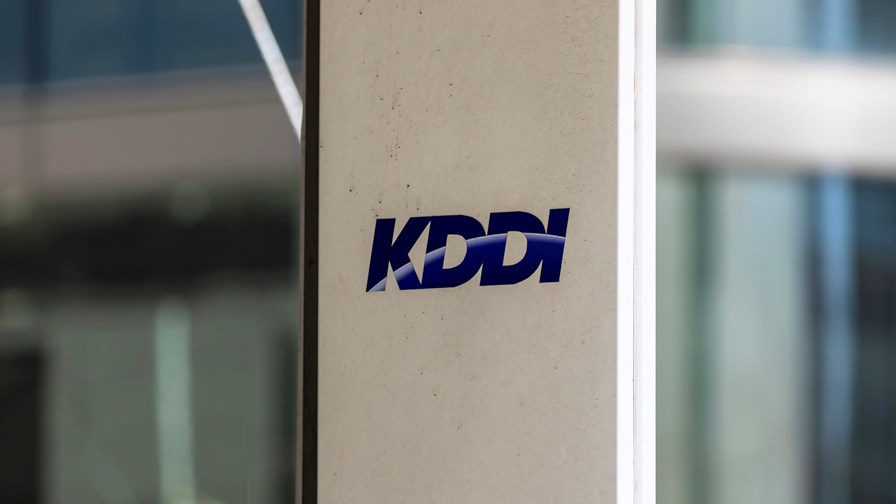
- The Japanese telco has been shopping
- It is acquiring a 50% stake in convenience store Lawson for $3.3bn
- KDDI will use the Lawson retail outlets to implement a ‘Real x Digital x Green’ strategy
- The catalyst for the move is Japan’s shifting demographics
Digital service provider (DSP) strategies take many different forms: Japan’s KDDI, for example, has gone shopping to flesh out its digital services strategy, address the needs of Japan’s ageing society and cement its sustainability credentials at the same time.
The operator is spending about 500bn yen ($3.35bn) to acquire shares that will give it a 50% stake in Japanese convenience store business Lawson and see it become the joint owner of the company. Current majority stakeholder Mitsubishi Corp. KDDI, which currently holds a 2.1% stake in Lawson, plans to do this by acquiring the shares currently held by other shareholders, which includes one of its main mobile industry rivals NTT Docomo, which also holds a 2.1% stake in Lawson. Once the company is a jointly owned venture, KDDI plans to de-list Lawson and make it a private firm.
The aim is to then execute a ‘Real x Digital x Green’ programme, where real equates to the physical locations (14,600 Lawson stores and 2,200 KDDI shops), digital refers to KDDI’s wireless and data collection and analytics platforms, and green relates to a strategy to make these physical stores more sustainable through the use of green energy and circular economy practices.
KDDI and Mitsubishi plan to develop the stores into what they call a “hub of refreshment in every community” by providing “sustainable services addressing various societal challenges including ‘green’ (reduction of environmental footprints) by combining the functionalities and services of KDDI and Lawson with one of the Japan’s largest consumer touchpoints, including Lawson’s real customers of over 10 million per day at approximately 14,600 stores with the digital customers of over 31 million from KDDI,” the operator noted in its M&A announcement.
The catalyst behind the move is Japan’s demographics: Its population is shrinking and ageing. As a result, KDDI expects local physical convenience stores to play an increasingly important role in Japan’s society: However, such businesses need to be run in a more efficient way (enhanced by digital technology) as labour shortages are making it harder to source staff to work at such stores, while the growing importance of environmental issues to consumers means a clear and identifiable sustainability strategy needs to be communicated and implemented. In addition, it’s increasingly important to have a broad range of products and services available via a single location to meet consumer needs.
The shops will add KDDI’s products and services (digital devices and services packages) to the current Lawson convenience store offerings (food, household goods, clothing) and will be fitted with online remote customer service terminals.
For the digital strategy, KDDI will combine customer and location data with purchase information to establish “one of the largest customer data platforms in Japan” that will then be used to develop targeted and relevant deals, while KDDI’s “digital transformation insights and technology” will be used to optimise store operations. At the heart of this will be the expansion of KDDI’s existing digital loyalty programme, au Smart-Pass Premium, which includes digital streaming entertainment and books, shopping coupons, partner discounts and other offers for a monthly fee of 548 yen ($3.67). (Note au is the brand used by KDDI for its consumer services.)
For the green element, KDDI plans to contribute towards and enhance Lawson’s existing “environmental vision”, which includes the use of solar panels at stores and a reduction in the use of plastics to improve efficiencies and reduce the carbon footprint of the shop network. KDDI noted that it is “expanding into a wide range of business areas”, such as “banking, insurance, education, travel, and delivery services”, in addition to communications services. “Additionally, KDDI operates one of Japan’s largest subscription services – au Smart-Pass Premium – with over 13 million users,” it added.
Lawson, meanwhile, has “a broad range of customer touchpoints with approximately 14,600 convenience stores in Japan, as well as supermarket chains (SEIJO-ISHII), entertainment business including ticket sales, movie theatres, travel agencies… and financial services (Lawson Bank) through in-store ATMs,” noted KDDI.
“By developing real-digital hybrid services [that leverage] each other's customer bases and services, we aim to expand our store networks, enhance service offerings at Lawson stores, such as telecommunication, finance, healthcare and education, and expand [our] economic zones of loyalty point programme. Additionally, we work towards achieving Lawson’s long-term goal of realising a decarbonised society by environmental reduction measures.”
- Ray Le Maistre, Editorial Director, TelecomTV
Email Newsletters
Sign up to receive TelecomTV's top news and videos, plus exclusive subscriber-only content direct to your inbox.




